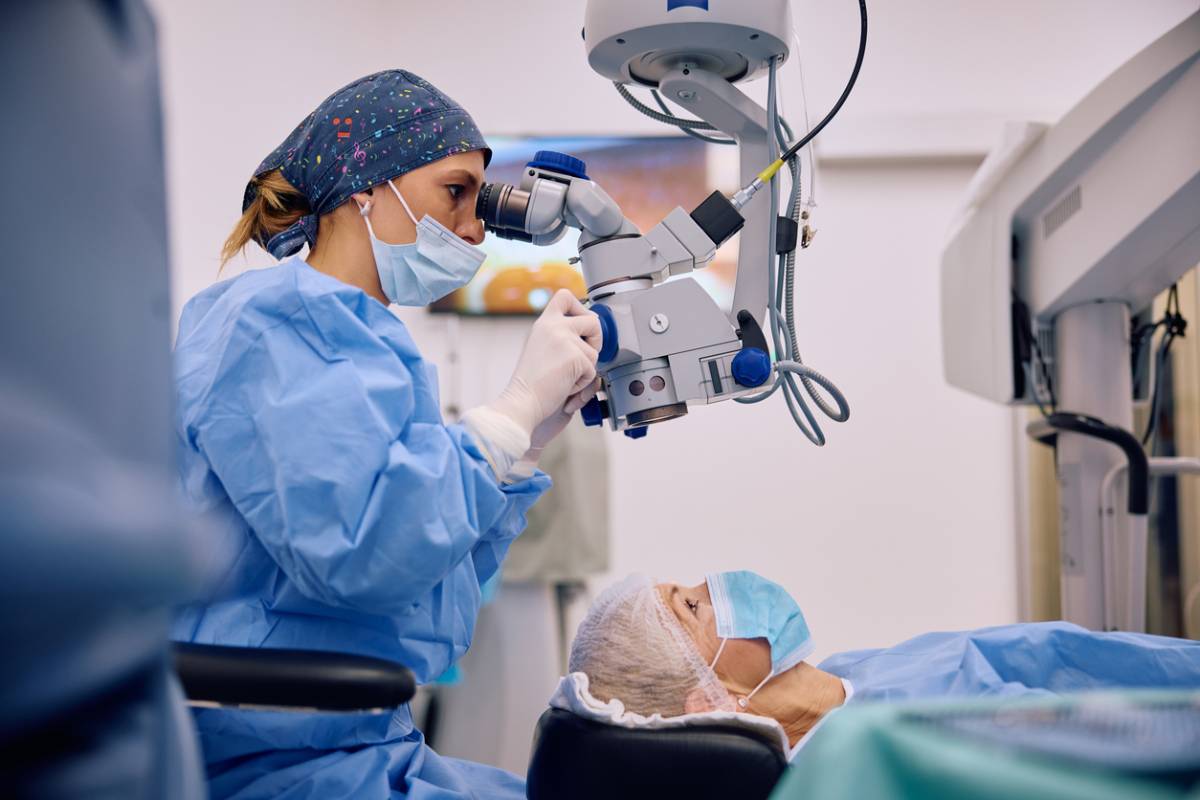Whatever its cause, failing vision is a major source of frustration for people facing it. One of the most common problems that can impair one’s vision is cataracts. In fact, more than half of Americans over the age of 80 have cataracts or have undergone treatment to repair their cataracts. Unfortunately, although cataracts are mostly found in older adults, young people and even babies are not exempt from it. Luckily, cataract surgery is a widely successful option to clear a person’s vision. However, because some patients who undergo the surgery are young, questions arise about the longevity of its results. Specifically, many people ask, “Can you have cataract surgery more than once?” Today, we answer this question and discuss cataract surgery.
What are Cataracts?
Cataract surgery is one of the most common and successful procedures performed worldwide. It restores clear vision to millions of patients each year. Still, common questions about the procedure center around how long the results will last and whether one can have another surgery if needed.
A cataract is a clouding over the lens of the eye. The lens is responsible for absorbing, focusing, and directing light coming in to the retina. Over time, cataract patients suffer from blurry or hazy vision, difficulty seeing at night, and sensitivity to light. This can make it a challenge to do everyday activities that you enjoyed before cataracts ruined your vision. If cataracts are not appropriately addressed, they can eventually lead to blindness. In fact, cataracts are the leading cause of blindness among older adults in the U.S.
Can You Have Cataract Surgery More than Once?
During cataract surgery, the cloudy lens is removed and replaced with an artificial lens called an intraocular lens. This artificial lens is designed to remain clear and functional for the rest of one’s life.
A cataract surgery is supposed to be a permanent solution. Once the cloudy lens is replaced, it stays clear and will not degrade like a natural lens might. Since the natural lens is removed entirely during surgery, there is no chance the cataract would come back to that eye. In all but exceptional cases, cataract surgery on the same eye becomes entirely unnecessary.
Posterior Capsule Opacification
While cataracts themselves do not return, a common post-surgical condition called posterior capsule opacification (PCO) can sometimes develop. PCO is sometimes called a secondary cataract. Although it is not a true cataract, it may cause similar symptoms like blurred vision and glare.
Yag Laser Capsulotomy
A quick and painless outpatient procedure called Yag Laser Capsulotomy is used to treat posterior capsule opacification. During cataract surgery, the lens capsule that is left intact to support the intraocular lens can become cloudy over time. This cloudiness can cause vision problems and mimic the effects of cataracts.
With Yag Laser Capsulotomy, a laser creates a small opening in the capsule, which allows light to pass through clearly and almost instantly restores clear vision. This is a highly effective procedure and rids the symptoms of PCO without the need for more surgical intervention.
Rare Situations Where Additional Surgery Is Needed
Cataract surgery is usually performed only once, but there are rare occasions when additional surgery is needed.
Incorrect Lens Power
If the implant does not give the expected correction to your vision because of an error in measurement or changes in the condition of your eyes, a replacement lens or additional lens may be necessary.
Lens Dislocation
In rare occurrences, the implanted lens can move out of its proper position. When this leads to vision problems, this may require surgical adjustment or lens replacement.
Eye Trauma
An injury to the eye after the surgery may cause damage to the implanted lens and necessitate additional surgery.
Advances in Technology
Some patients can choose to change their lenses if newer IOL technology that suits their lifestyle is available.
Maximize the Result of Your Surgery
If you have had cataract surgery, you can ensure the best possible results by:
- Using the prescribed eyedrops to reduce inflammation and prevent infection
- Attend the scheduled follow-up appointments with your eye surgeon to make sure you are healing properly.
- Wear protective eyewear to prevent injury.
Regain Your Vision
Cataract surgery is an effective and permanent solution to your cataract problem. A skilled and licensed eye surgeon can help you regain your vision by performing this surgery. If you have qualms or more questions about cataract surgery, schedule a consultation with us today.

